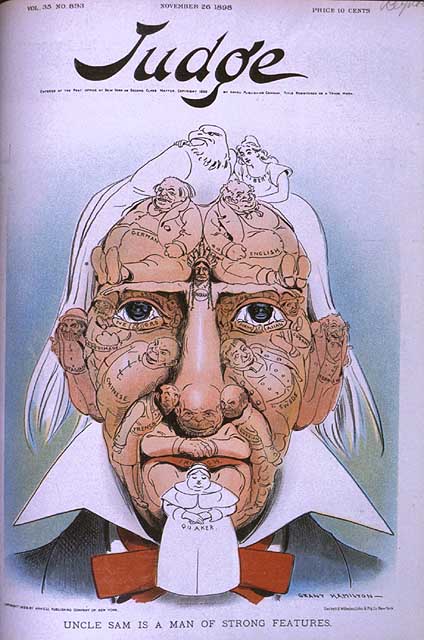1. Why is Bartocci's Famous Nylon Sale a secret from everyone including the workers?
2. Why would Rose suggest Eilis write to her and send it to her work address? What does this say about the mother daughter relationships?
3. What does Eilis's dream about the courthouse symbolize?
4. "She felt almost strong as she contemplated what had just happened and she resolved that no matter who came into the room now, even if it were Mr. Bartocci himself, she would be able to elicit their sympathy." (76) What does this quote show about Eilis?
5. "She had used a tone that she had heard her mother use, which was very dry and formal. She knew that Father Flood could not tell whether she meant what she said or not." (81) We've seen Eilis take on the persona of other people in her family. Why does she do so?
6. We've discussed how the author chose to tell the stories of some of her friends and her life in
7. The lyrics "Ma bhion tu liom, a stoirin mo chroi" (94) loosely translate to "If you're mine be mine, treasure of my heart". Why would the author chose for the man to sing this song to Eilis having never met her before?
I have included a link to the lyrics both in Gaelic and English
Also a link to a youtube video of the song.

2. Rose wants her sister to trust her and to be able to share with her whatever she wants. Rose understands that Eilis doesn't want to upset her mother, so probably she will not write her about the problems she may experience in the foreign country. I think Eilis has good relationships with her mother though, as any normal child, she just doesn't want her mom to worry about her too much.
ReplyDelete6. I think her father died and Eilis still misses him, so she sees him in every man. She tells us a lot about that time when "boys",(her brothers) lived at home and father was alive. She describes how happy they were and what a model family they had. So, I think, the lost of father is a big tragedy in their life.
ReplyDeleteWhy is Bartocci's Famous Nylon Sale a secret from everyone including the workers?
ReplyDeleteI was intrigued by this question and I honestly hoped that we would have a chance to talk about it in the class. While reading the novel I thought that the sale in Bartocci's didn't look like a significant information or event in the novel. I just thought that Toibin used it as another comparison between Brooklyn and the small Irish town, where Eilis did not experience blowout sales. I thought that the author wanted to illustrate that everything in America was different and strange to Eilis - even such an ordinary activity as shopping. When I realized that this sale was a secret from everyone including the workers, I realized that there must be more meaning behind this event, since authors rarely put insignificant information into their novels.
One of the possibilities might be a symbolic meaning of the stockings or nylon. I researched this topic and found out that besides being a fashion statement (especially in 1980's) nylon doesn't carry any historical meaning.
(For interested in the topic: I found an interesting google book about it: http://books.google.com/books?id=2YAYdk30VyIC&printsec=frontcover&dq=Nylon&hl=pl&ei=mxuoTparAoX20gHEhvWVAg&sa=X&oi=book_result&ct=result&resnum=1&ved=0CC4Q6AEwAA#v=onepage&q&f=false)
I also read that stockings were often a symbol of feminism and status, since during The Great Depression women who couldn't afford stockings used crayons to draw a line on the back of their legs to make the impression that they were wearing them.
With these information in hand and the fact that Bartocci's later served anyone who appeared in the store, regardless of their race or status, I thought that the secret sale might be a symbol of equality. It might be used to show that the owners of the store put everyone in an equal line to get these quality products without overpaying. Workers didn't get the tip before the sale day, so their families couldn't take advantage of the sale. They were all equal, unlike Miss Kelly's shop back in Ireland.
Although in the novel, it is stated that the African Americans were served in Bartocci's shop but separately. I can't recall but I'm pretty sure the counters for White-Americans and Black-Americans were separate.................So anyway even though Toibin makes that distinctive difference between Miss Kelly's shop and Mr Bartocci's, in a sense that Mr Bartocci embraces all races and cultures pg: 59... We also witness his sense of distance and partial xenophobia. (: God bless
DeleteBeing that Rose suggests that Eilis writes to her work address lets us know that Eilis isn't so close to her mother. Since Eilis already looks at Rose like a mother, it makes more sense that Eilis tells her problems to her and not the mom. Rose does not want her mother worrying anyway.
ReplyDeleteAs for Eilis using a very dry and formal tone, she imitates the tone of her mother as a way of holding her feelings in and not expressing her anger. She often imitates actions of the people in her family. Throughout the novel, we also see that everytime she gets angry, she holds it in.